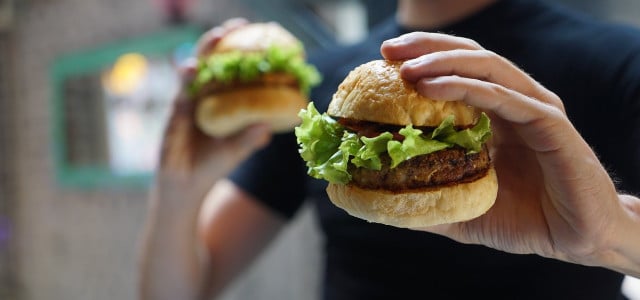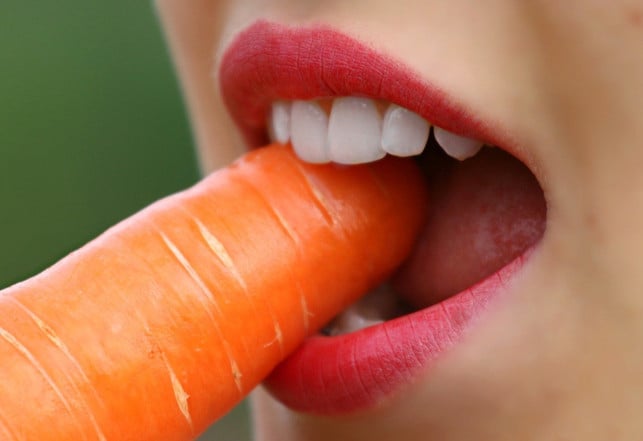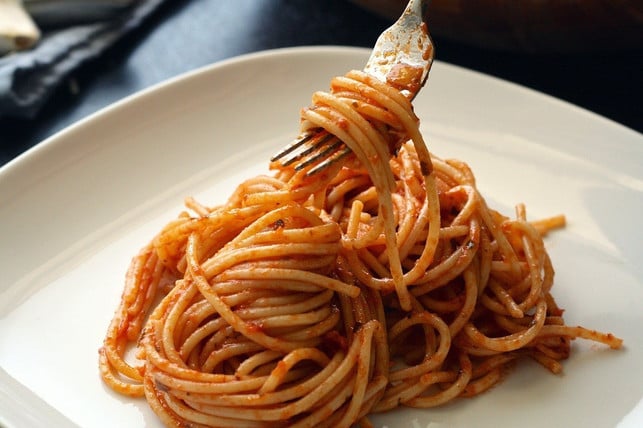
We learn from childhood that we shouldn’t eat too quickly. What is behind this admonition? Is eating slowly actually healthier?
Eating quickly is part of everyday life for many people. We often plan little time for meals, eat at the same time or are simply very hungry.
What does it even mean to eat fast or slow? Guideline values come from the Bavarian Consumer Service: Slow eaters chew every bite of solid food around thirty times and plan at least twenty minutes for a main meal.
But is it really necessary to take so much time eating? Is it unhealthy to eat quickly? We’ll get to the bottom of these questions here.
Eating quickly means eating more?
There seem to be few studies examining whether eating quickly is unhealthy. The following two sources refer to a possible connection between eating speed and obesity:
- A meta-analysis from 2015 evaluated 23 observational studies on the topic. The authors found that people who eat quickly are more likely to be overweight. However, it is unclear whether there is a direct connection between the two. The analysis also does not say whether eating more slowly is an effective measure for reducing excess weight.
- A study from 2017 contains health data from almost 60 Japanese people with type 2 diabetes from 2008 to 2013. There, the scientists found that eating more slowly actually helps with healthy weight loss and prevents obesity. However, the health data recorded is based on the statements of the test subjects and is difficult to verify.
There is a logical reason why eating quickly can lead to obesity: our feeling of fullness takes a while to kick in. Depending on the meal, it can take 20 to 30 minutes until all of the processes in the body that are important for satiety are completed. If we eat quickly, there is a risk that we will notice the feeling of fullness too late.
However, satiety depends on many more factors – physical and psychological. Did the body receive all the nutrients it needed? Is the stomach well filled? Is the need for pleasure satisfied? Based on previous experiences, does the brain feel that the body is adequately nourished? Eating slowly or quickly is just one component of this. Above all, what you eat is important.
Eating quickly means chewing badly

(Photo: CC0 / Pixabay / klimkin)
There is another point that speaks against eating quickly: the mouth plays an important role in digestion.
-
The teeth chop up the food to make the stomach’s work easier and to make important nutrients accessible. For example, so-called amylases in saliva break down starch into sugar – which is why bread tastes sweet if you chew it for a long time.
- In addition, saliva is important for allowing food to pass smoothly into the stomach and protects teeth from tooth decay.
- According to Stiftung Warentest, chewing also strengthens and cleans your teeth.
Eating quickly is not recommended, especially because you are unlikely to chew properly. This can harm oral health and lead to digestive problems because the stomach and intestines cannot cope with insufficiently pre-digested food.
The Apotheker-Umschau recommends eating slowly to prevent digestive problems. The German Nutrition Society (DGE) has also included slow and conscious eating in its ten rules for a balanced diet.
Eat slowly instead of quickly: these tips will make it work

(Photo: CC0 / Pixabay / ponce_photography)
Do you feel like you often eat too quickly? You can try eating more slowly and consciously with these tips:
- Plan enough time in your daily routine for meals.
- During this time, concentrate fully on your food.
- Chew each bite of solid food about twenty to thirty times.
- Take short breaks between each bite and listen to yourself: Are you still hungry? Are you full yet?
- Take small bites rather than large ones.
- Eat with cutlery instead of your fingers.
Read more on Techzle\.com:
-
Slow Food: Good reasons for conscious enjoyment
- Healthy lunch break: 12 tips for healthy eating at lunchtime
- Cravings: Avoid them with these tips
Revised by Philipp Multhaupt
** marked with ** or orange underlined Links to sources of supply are partly partner links: If you buy here, you are actively supporting Techzle\.com, because we then receive a small part of the sales proceeds. More info.